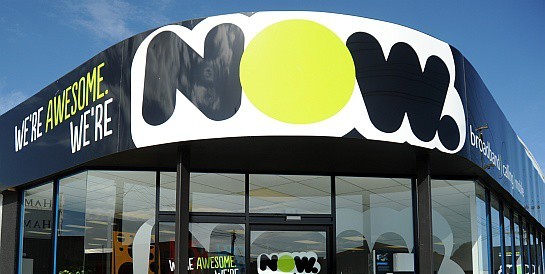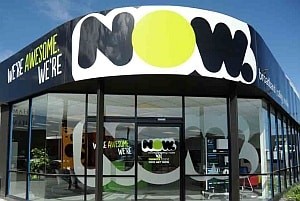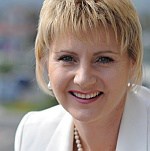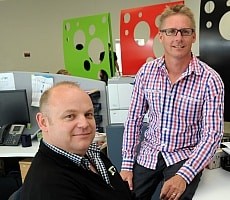Keith Newman canvasses local thought-leaders about the ‘other economy’, the social life of digital natives, venture capital, water skiing on the Ruataniwha dam and unleashing people power.
The need to diversify has been part of every economic report ever commissioned in Hawke’s Bay but has mostly been taken to mean spin-offs from agriculture, horticulture and viticulture … as if that’s the only kind of culture we know.
If around 40% of the Bay’s economy is land-based, including associated production, processing manufacturing, engineering and support industries, then there’s clearly another economy, although it’s much harder to define.
To achieve an economic shift that differentiates itself from our land-based heritage we have to tick more than the sunshine, lifestyle and tourist attraction boxes and look to areas that aren’t held to ransom by climate and commodity prices.
The McGredy Winder Report commissioned on Hawke’s Bay’s performance by our councils articulates what we already know – over the past decade the region has performed below average, and in school report card terms “has significant natural talent, but does not yet use it all effectively” and “could do better”.
Statistically there are 18,000 businesses across Hawke’s Bay; 62% comprise the self-employed and only 234 companies employ more than 50 staff. Employment was 80,000 at its peak in 2005 but is down 4.1%. We’ve been slowly slipping sideways.
Some firms have set a stunning pace for innovation and export but it’s not exactly the groundswell needed to drive sustained economic growth. So how do we evolve from being ‘price takers’ at the mercy of the markets, to price shakers setting the pace because we do it smarter and better than anyone else?
Misunderstood or muddling?
The buzz words that popped up in every conversation for this article were ‘potential’ and ‘opportunity’ along with an almost defensive mentality that suggests nothing’s really wrong, we’re just misunderstood.
Hawke’s Bay Regional Council’s regional development manager Michael Bassett-Foss believes many successful businesses fly under the radar and we’re not very good at telling our stories. “In regional New Zealand we tend to give lots of examples of challenges as opposed to opportunities and would do a lot better if we started talking about the glass being half full rather than half empty.”
Business Hawke’s Bay says the same things, but many companies either appear too shy or humble to stick their heads up, or everything’s hush-hush while managers and their teams are upskilled to become more tech and marketing savvy ahead of export or finance deals.
So the list of ‘other economy’ businesses supposedly doing so well in Hawke’s Bay reverts to the same champions being applauded five years ago: Unison, Future Products Group (FPG); Hayden & Custance, Furnware, ABC Software, Xero, Intersoft, Sirtrack, ABB, NOW, Big Save, Red Steel, Xplore, Mogul, East Coast Credit…
As far as hi-tech and information and communications technology (ICT) goes, retiring Chamber of Commerce CEO Murray Douglas says there’s not a lot going on in Hawke’s Bay other than a few “cameos”.
The problem is we don’t have a deep base for ICT which needs to be developed concurrently with science and technology innovation in our land-based industries. “It will develop but slowly because we don’t have a university or strong research facilities.”
Douglas is concerned at the low number of innovators in the Bay. “Over the last ten years we created less companies in Hawke’s Bay than any other region. That’s bad because it means we’re not attracting entrepreneurs, which are the group that start up companies.”
Unfortunately this whole subject is likely to provoke a long yawn from certain people. “There’s a deep-seated comfort level” among one group who aren’t touched by the economic decline and resist change. “Another group are well enough catered for at a lower level that they don’t feel they need to extend themselves.”
Unleashing people power
Rachael Cornwall, the CEO of employment agency Red Consulting, says we need better engagement with existing resources, including talented folk who want to make a contribution but find themselves locked into middle management or roles well below their achievements in other centres.
That includes many young people who are looking for permission to do a lot more, “perhaps taking one more step on the leadership or production management rung so they can come into their full potential and share new ideas.”
Unless this ‘horsepower’ is unleashed, and people are listened to and get a chance to show what they can do, Cornwall suggests they’ll move to other companies or other regions.
Currently there’s not the scale of organisations to provide good leaders with a career path and there needs to be some robust debate about how that can change. “We need a better idea of what the other economy looks like, including looking again at our natural resources, even oil and gas.”
That, she says, is “a scary one that noone really wants to face” as everything needs to be balanced against protecting our valued environment.
The McGredy Winder Report admits there’s no silver bullet for driving change or transforming an economy although the key is people, businesses and groups making conscious decisions to invest, take risks, work differently, and pursue new opportunities.
Visionaries needed
A common thread is the desire for a united vision and a strategy to achieve this rather than the currently frag-mented leadership.
“Effective and inspiring community leadership can make the difference between mobilising the community’s resources and capabilities to achieve common goals or muddling along,” says the report.
Hal Josephson agrees there’s a need for “enthusiastic evangelists, advocates and ambassadors who can not only inspire but actively make a difference and do this quickly”.
Josephson, who’s hobnobbed with the who’s who of Silicon Valley and brokered international trade deals, suggests the 21st century is “still not really in motion yet for Hawke’s Bay” although a range of opportunities are begging.
“You can’t just start from scratch, you have to figure out what has enabled the local economy to prosper and create new prosperity using new tools and technology.”
Chamber of Commerce spin-off, Business HB, helps businesses improve their marketing and presentation and become more tech savvy through its Hothouse and e-Commerce hubs.
Business HB development manager, Michaela Vodanovich, says there are constant inquiries from companies wanting to get a better handle on growth and development, mainly in the primary and food processing area, although some good hi-tech ideas are coming through.
Investors are looking
And there’s now a pot at the end of the rainbow for those with world-beating ideas. Business HB has plugged into substantial offshore private sector funding, specifically for start ups and new industries, and will short-list the best the Bay has to offer.
The challenge is getting candidates up to speed. Vodanovich says, there’s a real need for owner-manager courses to help market and commercialise. “The gap for us is a lack of commercial knowledge to present new ideas in such a way that people would be interested in investing.”
So who are these companies and what sort of ideas are up for investment? Vodanovich insists it’s a highly confidential programme. “Nine times out of ten businesses don’t want to share that information.”
About five hi-tech firms looked like they had potential for the short list when BayBuzz inquired ahead of our previous edition, including one with ‘world class potential’. However as Vodanovich says, it’s a moving target and some of those opportunities no longer exist. “Anything to do with lightweight economy or ICT is a really fast moving area.”
While the offer of start-up or venture capital cash is on the table, Vodanovich says some companies exhibit a stubborn preference to remain totally New Zealand owned and operated. “There are opportunities but identifying those businesses is not easy.”
Vodanovich says the education process is ongoing and it’s about repetition, “constantly reminding businesses that there is help here, that funding and investment is available.”
Entrepreneur Rod Drury advises local service-based industries to export themselves. “Get on the phone, organise meetings, attend conferences, book a flight to Auckland on cheap fares once a month and every year to Melbourne or Sydney. Become a global expert, meet people you can do business with and start exporting outside the region.”
He says we can’t afford to keep thinking the Government will bail us out of every tight spot. “If we want to do better, everyone should be thinking about exporting; that’s a cultural message that isn’t getting through and needs to be the next step-change.”
Digital natives needed
If the Hawke’s Bay economy is to advance; and ultimately defend itself from other regions taking advantage of the borderless digital economy, it must leverage breakthroughs in science, technology, engineering, communications and new ways of thinking.
Ignoring the eternal march of the microchip and the pervasiveness of next-generation broadband is a dangerous thing for any business that plans to expand. And without skilled people — digital natives perhaps — who thrive in that kind of culture, innovation will be limited.
Hamish White, CEO of NOW, believes the challenge for local businesses is to redefine their shop front. He cites Hawke’s Bay Seafoods which now advertises online and ships seafood directly to Auckland. “From a local market of 2.9 % of the population they now target about 35% of the overall market.”
Stephen Hill Motors is no longer reliant on people visiting the car yard. This company uses TradeMe to sell into the ‘boy racer niche’, mostly outside of Hawke’s Bay, with customised, lowered cars with fitted body kits. Another exemplar of the e-world, he says, is Big Save Furniture which has centralised all of its shop functions to Hawke’s Bay, including the call centre.
And East Coast Credit Control have redefined themselves as a worldwide debt collection agency. “They’ve gone global and they’re based in Hawke’s Bay with a couple of hundred staff,” says White.
Michael Bassett-Foss believes the proliferation of broadband, the increasing mobility of the labour force and the ability to access global markets is a no-brainer for Bay businesses. However, one impediment is that we haven’t put enough effort into creating the right social environment for entrepreneurial types.
“Hi-tech, high growth industries in particular, attract younger people who enjoy a more socially diverse environment. I think Hawke’s Bay can do better in that regard with its social amenities and infrastructure to support that.”
Bassett-Foss says the cluster-based environment where groups of companies share a common physical space and resources promotes the kind of networking along with wider employment and social opportunities.
That in turn can reflect an innovative, go-ahead, leading edge environment that attracts other smart people; skilled people in large hi-tech companies often break away and start their own businesses, contributing to economic growth, he says.
Digital meet and greet
Tourism is one of the areas where Hawke’s Bay thrives but like most land-based businesses, it’s relatively low-paid, although there’s potential for fresh thinking to change that.
One suggestion is to re-brand the Bay as a hospitality haven and a thought-leader for hi-tech conferences and trade shows. Hal Josephson says what’s needed is hi-tech meeting facilities with ultra-fast broadband connections and big screen hi-definition video conferencing to bring remote expertise and resources from around the globe.
Locally-hosted events, whether virtual or real world, are a catalyst for people to meet, network, share ideas and ultimately get things happening. “You can’t always get someone to come and press the flesh but you can get them on a video conference facility optimised for collaborative technology. This could help Hawke’s Bay take thought leadership based on what already exists.”
All of this would be a good fit alongside innovation hubs to connect with R&D engineers and scientists regardless of location or discipline, whether it’s food innovation or Hollywood for special effects and post-production.
Josephson suggests an important model for growing companies and their revenues is building business and marketing capability around our best ideas and partnering or licensing with large companies looking for new product or product line enhancement.
And we do seem to have an edge on ultrafast broadband, accounting for 10% of the national uptake, which Josephson says delivers “one huge opportunity” for amplifying the ability of existing companies “to create new products and services or innovate around things they’re already doing.”
He says more young entrepreneurs need to get excited about broadband and the 24/7 supply chain. “It’s all about management and time to market; in general Hawke’s Bay doesn’t understand that and how to proactively make things happen around those principles.”
Backing up in the Bay
With so-called ‘cloud’ technology it doesn’t matter where the supplier of software or services resides. So why isn’t Hawke’s Bay hosting more call centres, helpdesks, secure storage and back-up or business continuity, disaster recovery (BCDR) centres?
Hamish White at NOW is investing in infrastructure for off-site storage and back-up, on what he describes as a “reasonably grand scale”, aware that businesses across the region and beyond carry a lot of critical data that’s at risk.
NOW is on “a massive growth trajectory” of 120-150% year on year, doubling its staff to 21 this year, largely poaching local business away from Telecom, Telstra Clear and Vodafone and now looking at neighbouring regions, believing its call centre can employ up to 150 staff within five years.
If NOW achieves its target, it will need to employ local staff and procure more local goods and services. “We could be the hub of an economy that could create another entire industry; perhaps even a software development community on the back of our success as a telecommunications company.”
The kind of diversification that can disrupt our descent into the economic doldrums requires entrepreneurial regional leadership, and a strategy backed by the wider community that identifies, supports and attracts businesses that think outside the paddock.
While we’re pondering on that one, there are some ‘back-to-basic’ issues that need addressing. For example high flyers who regularly commute, or event organisers hoping for a good turnout, have come to resent the premium on airfares into and out of the Bay.
Hal Josephson sees this is a major gating factor. He’d extend the runway to accept bigger planes and make a deal with Air New Zealand to get discounts on blocks of tickets for regular commuters.
Hamish White, clearly not averse to pinching business from outside the region, preaches to locals that they should buy local whether it’s wine for the social club cabinet, signwriters or telecommunications services. “We’ve got to support each other to make our own businesses work.”
Rachael Cornwall partly agrees. “Instead of looking outside all the time for someone else to bring in a business to save the world, we’ve got to stand up and be accountable and do better ourselves.”
She suggests a regional campaign of doing everything 10% better; not only in revenue and productivity but thought leadership, operational functionality and unleashing some of the potential in existing businesses.
She’ll only buy local if it’s better than anywhere else. And if its 10% better, then perhaps that will also make an impact on how Hawke’s Bay is perceived in the wider world.




